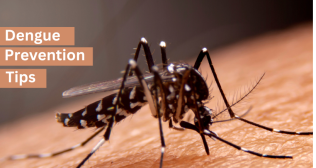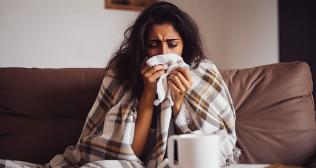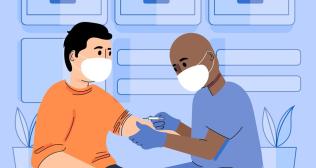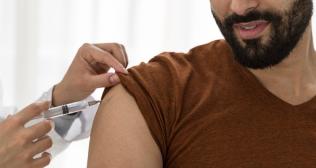
COVID Variant NB.1.8.1 (Nimbus): Razor-Like Sore Throat & Summer Safety Tips
Summer 2025 brings not just warmth but a new COVID concern: the NB.1.8.1 variant—nicknamed “Nimbus.” This Omicron offshoot is rapidly spreading, with cases identified in over 22 countries and active clusters emerging in Asia, North America, and India. Even though it's not deadlier, its faster spread and signature “razor‑blade” sore throat make it a variant worth watching. Here's your complete guide to recognizing, preventing, and responding to Nimbus so you can stay safe and confident this season.
Background & Why It Matters
- What is NB.1.8.1?
A descendant of the Omicron lineage, first spotted in January, now making up 10.7 % of sequenced cases globally—up from just 2.5 % a month ago. WHO keeps it on its radar as a Variant Under Monitoring. - Speed of spread?
Nimbus spreads more readily than many previous Omicron sub‑lineages due to new spike protein mutations that bind more tightly to human cells. - Is it more dangerous?
No evidence shows increased disease severity, hospitalizations, or mortality. Vaccines.
Symptoms to Watch For
Most symptoms mirror earlier COVID‑19 infections, but with a notable sore throat described as “razor‑blade” harshness:
- Fever or chills
- Severe sore throat (a key red flag!)
- Dry cough, congestion
- Fatigue, muscle aches
- Nausea, diarrhea in some cases
- Loss of taste/smell (less common now)
Practical tip: Even mild symptoms deserve attention—monitor your health and get tested promptly.
Diagnosing NB.1.8.1
- Rapid Antigen Test (RAT): Quick, convenient—best for early detection. If symptoms persist after a negative result, follow up with a PCR test.
- RT-PCR Test: The gold standard for confirmation and variant tracking.
- Multiplex PCR: Useful in differential diagnosis (e.g., to separate flu from COVID).
Potential Concerns & Risk Groups
While Nimbus doesn't appear more virulent, those at higher risk should stay alert:
- Individuals over 60
- People with chronic conditions (diabetes, heart or lung disease, immunocompromised)
- Unvaccinated or lacking recent boosters
- Pregnant women
Long COVID remains a concern—persistent fatigue, brain fog, or respiratory issues warrant medical advice if lasting beyond several weeks.
Treatment & Self‑Care at Home
- Rest and hydration: Core to recovery.
- Steam inhalation: Eases throat irritation and congestion.
- OTC remedies: Use fever reducers, throat lozenges, and cough syrup as needed.
- Monitor oxygen: If saturation drops below 94%, seek immediate medical help.
- When to seek care: High fever > 3 days, chest pain, breathing trouble, confusion, or persistent symptoms.
Vaccines & Boosters
Current vaccines, including updated fall boosters (e.g., XBB‑based), continue to protect against serious NB.1.8.1 infection. If you're high-risk or booster-naïve, consult your doctor about the latest shot.
Prevention: Your Summer Shield
WHO and Europe’s ECDC also stress ventilation, masking, and thorough respiratory etiquette to limit spread.
Take‑Home Action Steps
- Get boosted if eligible.
- Stay vigilant for nagging sore throat or mild flu-like symptoms.
- Test early, isolate if positive, and treat symptoms.
- Keep safety measures like masking and ventilation in place.
- Monitor health, especially if you're high-risk.
Conclusion
NB.1.8.1 may be silently spreading, but with knowledge comes power. You’ve got the tools—boosters, testing, home care, and smart prevention—to protect yourself and loved ones. Don’t let fear win—stay informed, act early, and enjoy a safe summer. You’ve conquered COVID before—you can do it again.
FAQs
- Is NB.1.8.1 more severe than Omicron?
No—symptoms are comparable, and vaccines continue to prevent hospitalizations. - Why is the sore throat so intense?
Some report it like "razor‑blade" pain, which is uncommon and may be the variant's hallmark . - Should I get tested if symptoms are mild?
Yes. Early testing enables isolation, treatment, and peace of mind. - Will summer make NB.1.8.1 go away?
Not likely—COVID surges often occur in summer too. Precautions are key. - Are boosters still effective?
Absolutely—updated vaccines provide continued protection against severe illness.



















